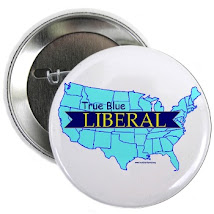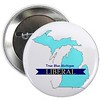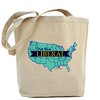I began thinking about this blog post on the day that Bernie Sanders formally endorsed Hillary Clinton in New Hampshire earlier this week. I thought this might be a short post talking about how I supported Bernie from before his announcement last May until this April 26th when it was obvious to me that my candidate no longer had a chance. If I were younger I might be a #BernieOrBust dead ender now, so I thought it was worth trying to examine that impulse. As much as I would have hated at 18 or 25 to have been given a lecture by a 60-year-old man, I need to write this; I hope it doesn't come off as a lecture, but as more of a case history. It seems necessary because Donald Trump is the most dangerous candidate I've seen in almost fifty years of closely following politics; not only does he need to lose, but he needs to lose as decisively as possible.
I thought I'd be writing a little bit about 1972 when I supported Dr. Spock of the People's Party -- because I thought him more ideologically perfect than George McGovern -- and contrast that with the very first election where my guy won the primaries and the general election, which didn't come until Barack Obama's victory in 2008. However, when I started refreshing my memory by digging through a box of old buttons this afternoon, it started to seem as if I might have something to say about lesser-than-two-evilism in every presidential election from 1968 until 2016. So I think this will be at least a two- or three-part blog post.
1968
I was in eighth grade in the San Fernando Valley during the events of 1968 (I'm listening to After Bathing At Baxter's to complete the mood as I write this). By the time the primaries reached us in California, I was definitely more of a Bobby Kennedy than Gene McCarthy supporter, so on that June primary night in Los Angeles...
It's fucking awful. After all these years it comes flooding back. We knew a young woman, our old babysitter, who was at the Ambassador Hotel during his victory celebration on the night when...
He would have been our president, you know. There's not a fucking doubt about it. I can still remember the people of Los Angeles all driving with their headlights on during daylight (a very rare thing then) on the day when he lay in the hospital dying, as a way of silently saying "Pray for Bobby." The prayers didn't work. I saw adults crying.
In retrospect I have hard feelings about the nomination being taken by the party establishment for Humphrey from the remaining peace candidates McCarthy and McGovern, but I think it's mostly in retrospect. I don't have any first-hand memories of watching the police riots in Chicago; I was camping in the High Sierras without television or radio during the convention. I had no problem wearing a Humphrey/Muskie button during the fall. I don't remember having any sense of selling out or choosing "the lesser of two evils." Hubert Humphrey would have been preferable to Richard Nixon then, almost as clearly as Hillary Clinton is preferable to Donald Trump now.
Digging through my buttons, I found two other candidates that I was more excited about than Hubert. Alan Cranston ran for Senator in 1968 with an explicitly anti-war message, as can be seen from the peace symbol on his button. I definitely wore this with more passion than any HHH button. The button next to it is from Tom Bradley's first run for mayor of Los Angeles against Sam Yorty (in a Democrat vs. Democrat non-partisan election). He didn't win that first race in 1969, but it's hard to overstate how revolutionary it felt for an African-American man to be favored to win the top job in a major American city (and it shouldn't be surprising that he lost in this first attempt).
1972
For the 1972 election I was a senior in high school with hair down my back, which I was careful to tell everyone was a political and not a fashion statement. (The soundtrack for this election year is Sticky Fingers.) I was living in New Jersey and I was the Student Mobilization Committee organizer in my school for National Peace Action Coalition anti-war marches to D.C. and New York in 1971 and '72. When George McGovern first announced his candidacy, I signed up and did canvassing for him in suburban neighborhoods (where I was shocked to find registered Democrats who told me they were actually supporting George Wallace living near me!). McGovern did what any candidate needs to when trying to get a major-party nomination, appealing to more than the party's left-most peacenik wing, and somewhere along the way he lost me.
I read an article about Benjamin Spock's presidential campaign with the People's Party in The New York Times Magazine and I wrote to the paper to see if I could get an address to contact the party (it's hard to remember how hard it was to get this type of information before the internet). The article's author Judith Viorst wrote back to me with their address and I became very involved, meeting Dr. Spock and portraying him in our school's mock election (which was won handily by Richard Nixon). I remember feeling very proud of my ideological purity as did my fellow students who represented the candidates from the Socialist Workers and Socialist Labor parties. We should have ALL been backing McGovern, of course, but we were young and not prone to compromise. Bernie Sanders, who was an adult and a new resident of Vermont at the time, belonged to a party that also supported Dr. Spock and the People's Party. He should have known better. In the choice between McGovern and Nixon, there wasn't a whiff of choosing "the lesser of two evils"; one was evil and one was George McGovern.
Having Nixon back in the White House allowed those of us with a passion for demonstrating in streets to travel to D.C. on Inauguration Day 1973 with our sense of righteous anger about the war and all of the other abuses of the Nixon White House intact. We could raise our fists and take over the area around the Washington Monument with Vietcong flags. It reminds me of Susan Sarandon's recent statement about how a Trump election might do more to hasten some sort of "revolution" than the election of Hillary would. But Sarandon's not seventeen. That was my excuse in 1972. She's even older than me and she should know better. Without sounding like an old scold, I want to tell the young #BernieOrBust voters that I know what it's like to be caught up in a "more radical than thou" frame of mind. I know what it's like not to want to compromise a single principle, but I don't feel I (or any of us) have that luxury this year.
1976
 This was the first year I was old enough to vote, and as a university student I was more concerned with Japanese literature, German philosophy, and the Grateful Dead than I was with Jimmy Carter. (The current soundtrack in this room is side four of Steal Your Face.) Sadly, I honestly can't remember if I even voted in this first year of eligibility, though I did find this Eugene McCarthy button in this afternoon's treasure hunt. I have always loved Gene and I wrote here last June about his similarties to Bernie, but I honestly can't remember whether I voted for him, for Jimmy, or for no one during the Bicentennial year, though I do remember being happy that Jimmy Carter beat Jerry Ford.
This was the first year I was old enough to vote, and as a university student I was more concerned with Japanese literature, German philosophy, and the Grateful Dead than I was with Jimmy Carter. (The current soundtrack in this room is side four of Steal Your Face.) Sadly, I honestly can't remember if I even voted in this first year of eligibility, though I did find this Eugene McCarthy button in this afternoon's treasure hunt. I have always loved Gene and I wrote here last June about his similarties to Bernie, but I honestly can't remember whether I voted for him, for Jimmy, or for no one during the Bicentennial year, though I do remember being happy that Jimmy Carter beat Jerry Ford.
As far as the lesser-of-two-evils theme applies to 1976, I don't remember thinking of either Jimmy or Jerry as evil. Ford had beaten the very evil Ronald Reagan at his convention, and the only act of Ford's I remember disagreeing with was his pardon of Nixon. I like Jimmy Carter a lot as an ex-President, but ...
Well, I might as well end part one of this on that undramatic note, so you'll all be on the edges of your seats waiting for the 1980 story of Ronald Reagan, Ted Kennedy, and John Anderson ... oh yeah, and Jimmy Carter too.
CLICK HERE FOR PART TWO.
I thought I'd be writing a little bit about 1972 when I supported Dr. Spock of the People's Party -- because I thought him more ideologically perfect than George McGovern -- and contrast that with the very first election where my guy won the primaries and the general election, which didn't come until Barack Obama's victory in 2008. However, when I started refreshing my memory by digging through a box of old buttons this afternoon, it started to seem as if I might have something to say about lesser-than-two-evilism in every presidential election from 1968 until 2016. So I think this will be at least a two- or three-part blog post.
1968
I was in eighth grade in the San Fernando Valley during the events of 1968 (I'm listening to After Bathing At Baxter's to complete the mood as I write this). By the time the primaries reached us in California, I was definitely more of a Bobby Kennedy than Gene McCarthy supporter, so on that June primary night in Los Angeles...
It's fucking awful. After all these years it comes flooding back. We knew a young woman, our old babysitter, who was at the Ambassador Hotel during his victory celebration on the night when...
He would have been our president, you know. There's not a fucking doubt about it. I can still remember the people of Los Angeles all driving with their headlights on during daylight (a very rare thing then) on the day when he lay in the hospital dying, as a way of silently saying "Pray for Bobby." The prayers didn't work. I saw adults crying.
In retrospect I have hard feelings about the nomination being taken by the party establishment for Humphrey from the remaining peace candidates McCarthy and McGovern, but I think it's mostly in retrospect. I don't have any first-hand memories of watching the police riots in Chicago; I was camping in the High Sierras without television or radio during the convention. I had no problem wearing a Humphrey/Muskie button during the fall. I don't remember having any sense of selling out or choosing "the lesser of two evils." Hubert Humphrey would have been preferable to Richard Nixon then, almost as clearly as Hillary Clinton is preferable to Donald Trump now.
Digging through my buttons, I found two other candidates that I was more excited about than Hubert. Alan Cranston ran for Senator in 1968 with an explicitly anti-war message, as can be seen from the peace symbol on his button. I definitely wore this with more passion than any HHH button. The button next to it is from Tom Bradley's first run for mayor of Los Angeles against Sam Yorty (in a Democrat vs. Democrat non-partisan election). He didn't win that first race in 1969, but it's hard to overstate how revolutionary it felt for an African-American man to be favored to win the top job in a major American city (and it shouldn't be surprising that he lost in this first attempt).
1972
For the 1972 election I was a senior in high school with hair down my back, which I was careful to tell everyone was a political and not a fashion statement. (The soundtrack for this election year is Sticky Fingers.) I was living in New Jersey and I was the Student Mobilization Committee organizer in my school for National Peace Action Coalition anti-war marches to D.C. and New York in 1971 and '72. When George McGovern first announced his candidacy, I signed up and did canvassing for him in suburban neighborhoods (where I was shocked to find registered Democrats who told me they were actually supporting George Wallace living near me!). McGovern did what any candidate needs to when trying to get a major-party nomination, appealing to more than the party's left-most peacenik wing, and somewhere along the way he lost me.
I read an article about Benjamin Spock's presidential campaign with the People's Party in The New York Times Magazine and I wrote to the paper to see if I could get an address to contact the party (it's hard to remember how hard it was to get this type of information before the internet). The article's author Judith Viorst wrote back to me with their address and I became very involved, meeting Dr. Spock and portraying him in our school's mock election (which was won handily by Richard Nixon). I remember feeling very proud of my ideological purity as did my fellow students who represented the candidates from the Socialist Workers and Socialist Labor parties. We should have ALL been backing McGovern, of course, but we were young and not prone to compromise. Bernie Sanders, who was an adult and a new resident of Vermont at the time, belonged to a party that also supported Dr. Spock and the People's Party. He should have known better. In the choice between McGovern and Nixon, there wasn't a whiff of choosing "the lesser of two evils"; one was evil and one was George McGovern.
Having Nixon back in the White House allowed those of us with a passion for demonstrating in streets to travel to D.C. on Inauguration Day 1973 with our sense of righteous anger about the war and all of the other abuses of the Nixon White House intact. We could raise our fists and take over the area around the Washington Monument with Vietcong flags. It reminds me of Susan Sarandon's recent statement about how a Trump election might do more to hasten some sort of "revolution" than the election of Hillary would. But Sarandon's not seventeen. That was my excuse in 1972. She's even older than me and she should know better. Without sounding like an old scold, I want to tell the young #BernieOrBust voters that I know what it's like to be caught up in a "more radical than thou" frame of mind. I know what it's like not to want to compromise a single principle, but I don't feel I (or any of us) have that luxury this year.
1976
 This was the first year I was old enough to vote, and as a university student I was more concerned with Japanese literature, German philosophy, and the Grateful Dead than I was with Jimmy Carter. (The current soundtrack in this room is side four of Steal Your Face.) Sadly, I honestly can't remember if I even voted in this first year of eligibility, though I did find this Eugene McCarthy button in this afternoon's treasure hunt. I have always loved Gene and I wrote here last June about his similarties to Bernie, but I honestly can't remember whether I voted for him, for Jimmy, or for no one during the Bicentennial year, though I do remember being happy that Jimmy Carter beat Jerry Ford.
This was the first year I was old enough to vote, and as a university student I was more concerned with Japanese literature, German philosophy, and the Grateful Dead than I was with Jimmy Carter. (The current soundtrack in this room is side four of Steal Your Face.) Sadly, I honestly can't remember if I even voted in this first year of eligibility, though I did find this Eugene McCarthy button in this afternoon's treasure hunt. I have always loved Gene and I wrote here last June about his similarties to Bernie, but I honestly can't remember whether I voted for him, for Jimmy, or for no one during the Bicentennial year, though I do remember being happy that Jimmy Carter beat Jerry Ford.As far as the lesser-of-two-evils theme applies to 1976, I don't remember thinking of either Jimmy or Jerry as evil. Ford had beaten the very evil Ronald Reagan at his convention, and the only act of Ford's I remember disagreeing with was his pardon of Nixon. I like Jimmy Carter a lot as an ex-President, but ...
Well, I might as well end part one of this on that undramatic note, so you'll all be on the edges of your seats waiting for the 1980 story of Ronald Reagan, Ted Kennedy, and John Anderson ... oh yeah, and Jimmy Carter too.
CLICK HERE FOR PART TWO.
















No comments:
Post a Comment